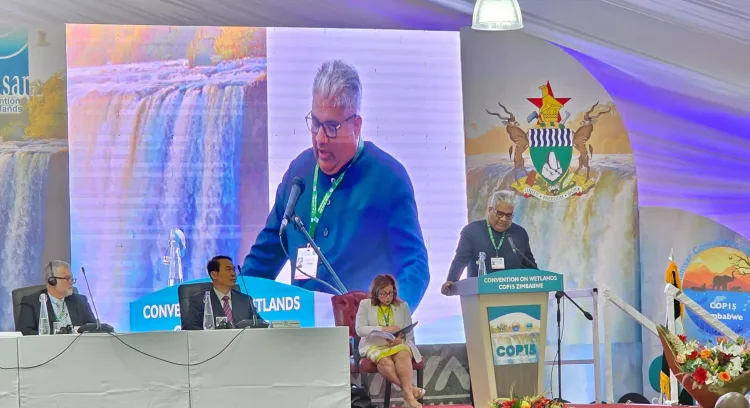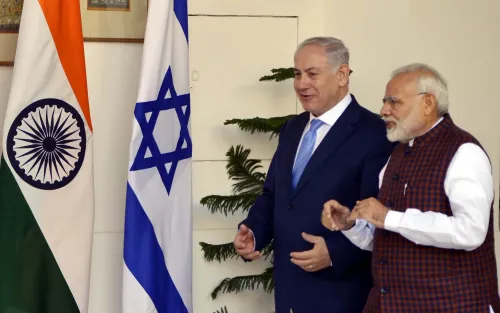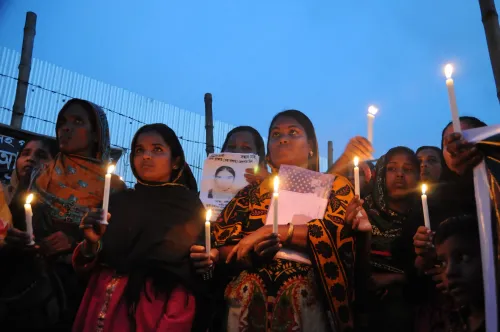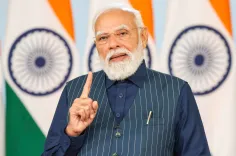How Are India and Namibia Strengthening Cheetah Conservation Ties?

Synopsis
Key Takeaways
- India and Namibia are collaborating on cheetah conservation.
- Both nations are committed to protecting ecosystems.
- India has the largest network of Ramsar Sites in Asia.
- The partnership is rooted in democratic values and mutual respect.
- PM Modi emphasized solidarity with the Global South.
Harare, July 25 (NationPress) The Minister for Environment, Forest and Climate Change (MoEFCC) of India, Bhupender Yadav, engaged in discussions aimed at enhancing cooperation in cheetah conservation, while reaffirming a commitment to ecosystem protection, with Indileni Daniel, Minister of Environment, Forestry and Tourism from Namibia, during the 15th Meeting of the Conference of the Contracting Parties (COP15) held in Zimbabwe last Friday.
In a post on X, Yadav stated, “We explored avenues to strengthen collaboration in cheetah conservation and reiterated our mutual commitment to safeguarding wetlands and the ecosystems they support.”
The MoEFCC also highlighted discussions regarding the enduring friendship and partnership between India and Namibia.
“We reflected on our longstanding friendship and robust environmental partnership, rooted in mutual respect, democratic principles, and shared sustainability objectives,” Yadav mentioned on X.
Leading the Indian delegation at COP15, which is taking place at Victoria Falls from July 23 to 31, Yadav emphasized India’s significant role in global wetlands conservation, noting that India boasts 91 Ramsar Sites, the largest network in Asia and the third largest globally.
The Ramsar COP15 convenes 172 Contracting Parties, International Organisation Partners, scientific entities, civil society, and community representatives to finalize work programs and budgetary plans for the next triennium, addressing various ongoing and emerging environmental challenges.
India's proactive involvement at COP15 highlights its steadfast commitment to wetlands conservation, climate leadership, and the principles of ecological sustainability and intergenerational equity.
Earlier this month, Prime Minister Narendra Modi also made a State Visit to Namibia.
In his address to the Namibian parliament, PM Modi underscored that India and Namibia uphold strong democratic principles and values, reminiscing about the legacy of Dr. Sam Nujoma, Namibia's founding father, emphasizing that the essence of this historical bond is the people of both nations.
As he outlined the future goals for the India-Namibia partnership, PM Modi asserted that India will continue to walk alongside Namibia and in solidarity with the Global South.
He remarked that both India and Namibia share a common history of fighting against colonialism.










